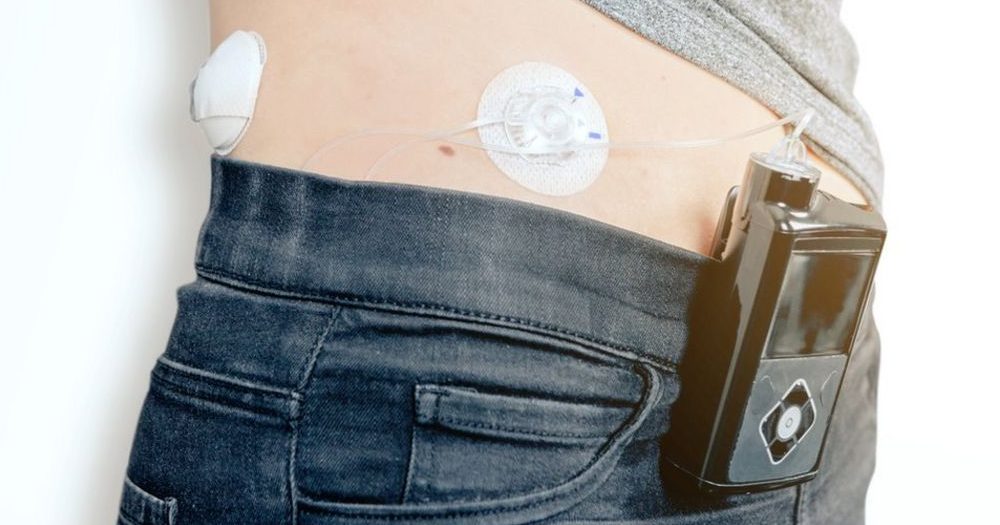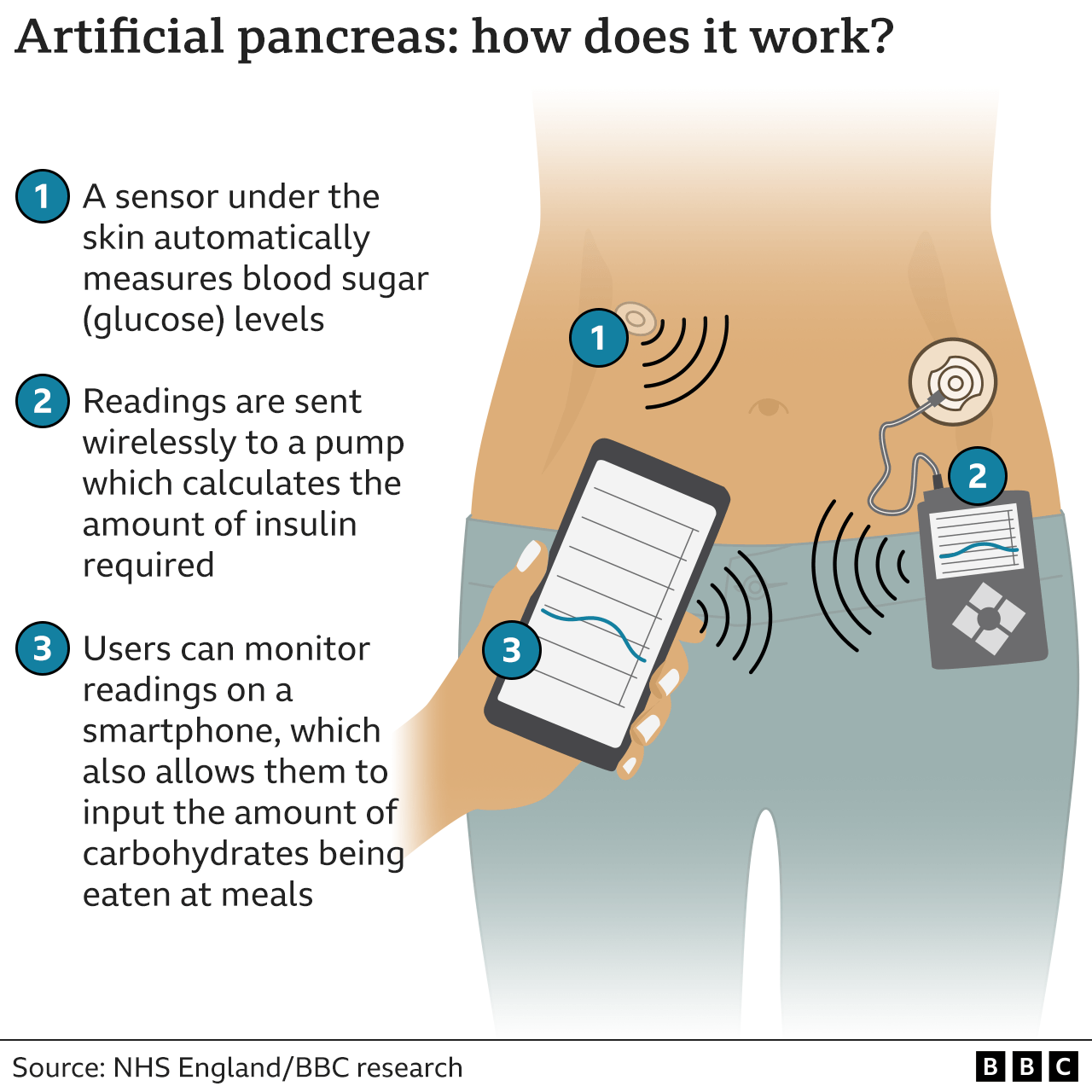UK diabetes patients to be offered artificial pancreas tech

In a move poised to transform the lives of thousands, England's NHS is set to introduce an innovative technology to those living with type 1 diabetes — the so-called artificial pancreas.
This technological marvel aims to automate insulin delivery, mimicking the natural functions of a healthy pancreas — thereby offering a new horizon of freedom and stability for individuals grappling with this challenging condition.
How does it work?
At the heart of the system is a glucose sensor, discreetly positioned under the skin, that diligently monitors blood sugar levels. Based on these readings, it calculates the precise amount of insulin required and administers it through a pump.
This setup, known as a hybrid closed-loop system, significantly reduces the burden on individuals to manually manage their insulin levels — though it does require input on meal consumption for optimal accuracy.
Its primary goal is to maintain blood glucose levels within a safe range, automatically adjusting insulin delivery to prevent dangerously high or low levels that could lead to severe health crises.
Why does it matter?
The significance of this technology cannot be overstated for the nearly 300,000 UK residents living with type 1 diabetes, including about 29,000 children. By taking over the constant vigilance required in insulin management, the artificial pancreas not only aims to reduce the risk of life-threatening complications but also promises a marked improvement in quality of life.
Users of the system, like Gemma Lavery who participated in an NHS pilot scheme, attest to its life-altering impact — citing more stable diabetes management, reduced stress, and uninterrupted sleep.
Moreover, by enhancing overall blood sugar control, it paves the way for a future with fewer diabetes-related complications such as heart disease, vision loss, and kidney damage.
The context
Despite its potential, the full implementation of artificial pancreas technology faces hurdles, including supply chain limitations and the need for extensive staff training. As such, while initial deployment will commence soon, reaching all eligible individuals may take up to five years. This phased approach underscores the NHS's commitment to transforming diabetes care, albeit gradually, due to logistical constraints.
Scotland is already onboard with offering this technology, and Wales and Northern Ireland may soon join in this healthcare evolution.
💡Did you know?
You can take your DHArab experience to the next level with our Premium Membership.👉 Click here to learn more
🛠️Featured tool
 Easy-Peasy
Easy-Peasy
An all-in-one AI tool offering the ability to build no-code AI Bots, create articles & social media posts, convert text into natural speech in 40+ languages, create and edit images, generate videos, and more.
👉 Click here to learn more



